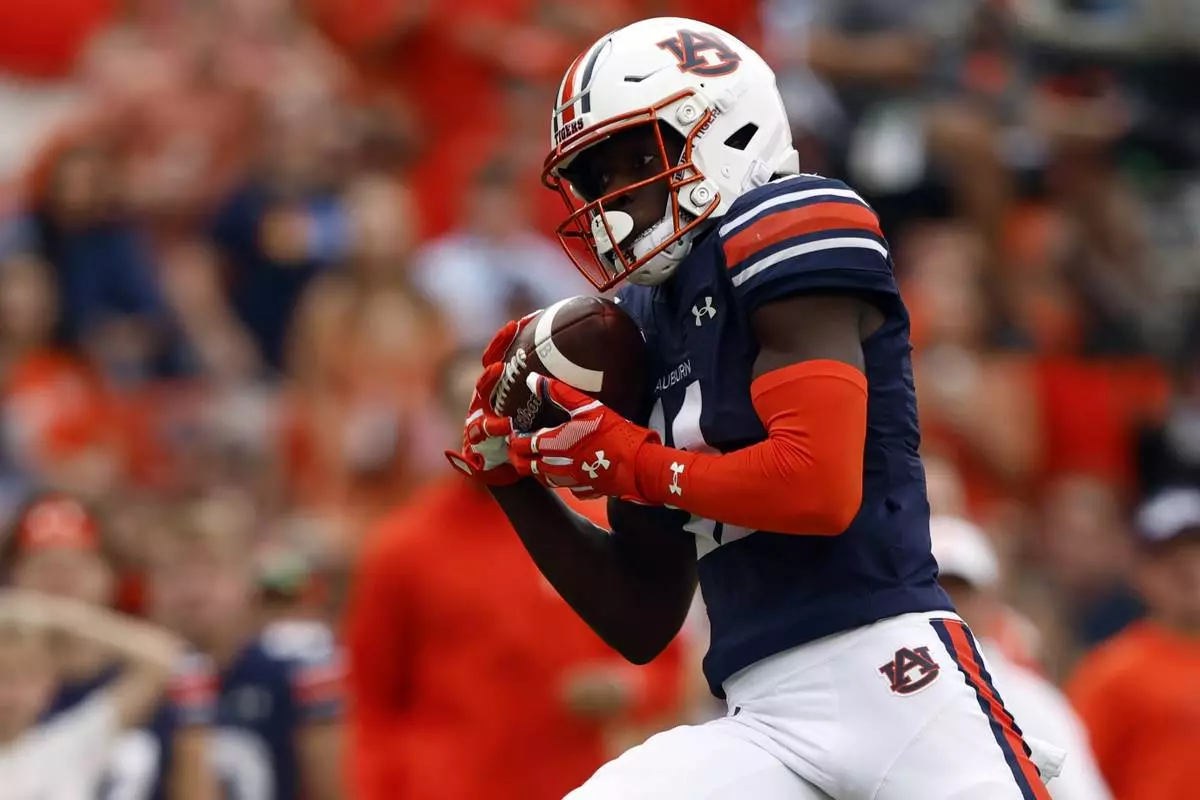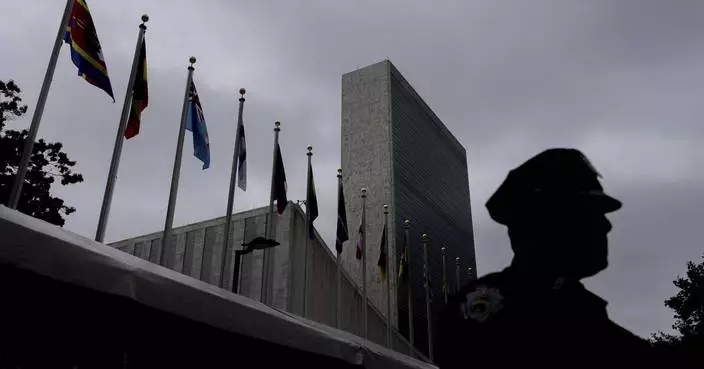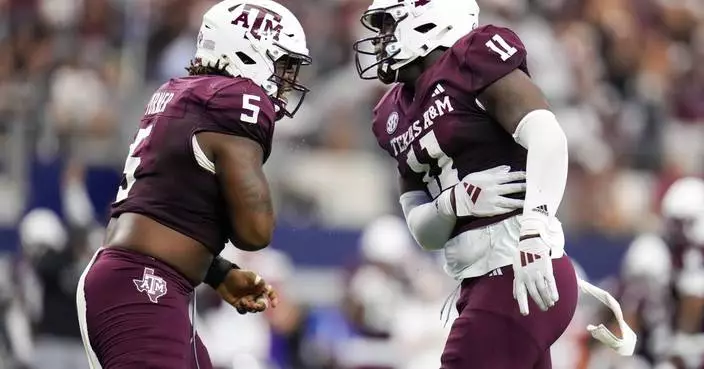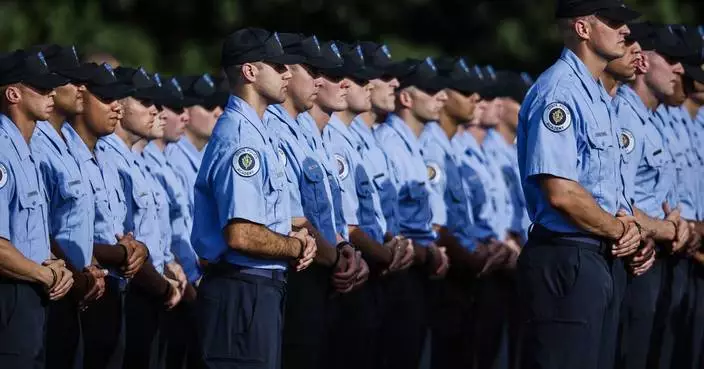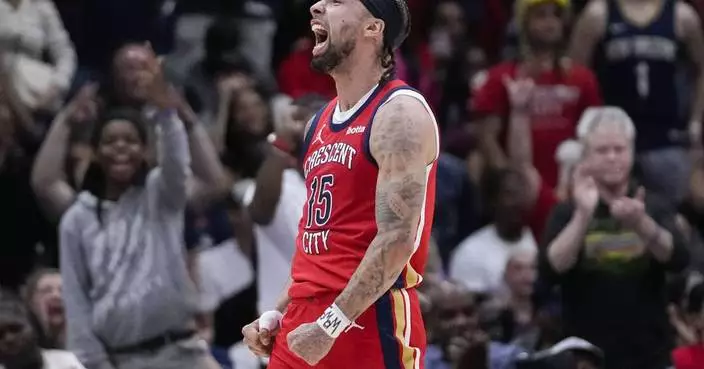MINNEAPOLIS (AP) — Five people were charged Wednesday with conspiring to bribe a Minnesota juror with a bag of $120,000 in cash in exchange for the acquittal of defendants in one of the country’s largest COVID-19-related fraud cases, the U.S. Attorney’s Office and the FBI announced Wednesday.
Court documents made public reveal an extravagant scheme in which the accused researched the juror’s personal information on social media, surveilled her, tracked her daily habits and bought a GPS device to install on her car. Authorities believe the defendants targeted the woman, known as “Juror 52,” because she was the youngest and they believed her to be the only person of color on the panel.
According to court documents, the group came up with a “blueprint” of arguments for the juror to help persuade other jurors to acquit, injecting the idea that prosecutors were motivated by racial animus: “(w)e are immigrants, they don’t respect us,” the list of proposed arguments read.
The juror reported the bribery attempt and was removed from the case before deliberations began.
The bribe attempt brought renewed attention to the trial of seven Minnesota defendants accused of coordinating to steal more than $40 million from a federal program that was supposed to feed children during the coronavirus pandemic. More than $250 million in federal funds were taken overall in the scheme and only about $50 million has been recovered, authorities say.
Abdiaziz Shafii Farah, Abdimajid Mohamed Nur, Said Shafii Farah, Abdulkarim Shafii Farah and Ladan Mohamed Ali are each charged with one count of conspiracy to bribe a juror, one count of bribery of a juror and one count of corruptly influencing a juror, according to the indictment.
Abdiaziz Shafii Farah is also charged with one count of obstruction of justice.
Abdiaziz Shafii Farah and Abdimajid Mohamed Nur were among five convicted in the fraud trial earlier this month while Said Shafii Farah was acquitted. Abdulkarim Shafii Farah and Ladan Mohamed Ali were not involved.
Investigators spent three weeks reviewing mountains of evidence to uncover the plot, which U.S. Attorney Andrew Luger, described as “something out of a mob movie.”
The five people charged attempted to win an acquittal not on the evidence, but “through an elaborate scheme to infiltrate this jury,” he said.
According to the indictment, the plan was hatched in mid-May. Ali, who is accused of delivering the bribe money to the juror's home, flew from Seattle to Minneapolis on May 17 to meet with Nur and allegedly agreed to deliver the bribe money to the home of “Juror #52” in exchange for $150,000.
She returned to Minneapolis two weeks later on May 30 and a day later attempted to follow the woman home as she left a parking ramp near the courthouse.
On June 2, Abdiaziz Farah instructed Nur to meet at Said Farah’s business to pick up the bribe money, the indictment says. When Nur arrived at the business, Said Farah gave him a cardboard box containing the money and told Nur to “be safe.” Nur gave the money to Ali after picking her up in a parking lot later in the day. Hours later, Ali and Abdulkarim Farah drove to a Target store and purchased a screwdriver, which they used to remove the license plates from Ali’s rental car before driving to the juror's home.
As Farah stayed in the car and filmed the encounter, Ali knocked on the door and was greeted by a relative of the juror. Ali handed the gift bag to her and explained there would be more money if the juror voted to acquit.
The juror called police after she got home and gave them the bag, according to an FBI affidavit. The affidavit noted that the woman who left the bag knew the juror’s first name. Names of the jurors have not been made public, but the list of people with access to them included prosecutors, defense lawyers and the seven defendants.
On June 3, after the bribe attempt was reported, U.S. District Judge Nancy Brasel ordered all seven defendants to surrender their phones. Abdiaziz Farah conducted a factory reset of his iPhone to delete all the messages and photos detailing the plot, according to court records.
Two days later, FBI agents executed a search warrant on Abdiaziz Farah’s home and found a typed list of the jurors hidden inside a plastic water bottle.
Abdiaziz Farah, Said Farah and Abdulkarim Farah made their initial appearances in federal court Wednesday afternoon. A defense attorney who represented them at the hearing declined to comment afterward.
All three men requested representation from the Office of the Federal Defender, a request prosecutors objected to, citing the defendants’ alleged access to money parked abroad. Abdiaziz Farah sent millions in stolen money to Kenya and elsewhere in East Africa, prosecutors said. That money was used to purchase and construct a 12-story apartment building in Nairobi, they added.
Magistrate Judge Douglas L. Micko temporarily allowed the defendants their requested representation and scheduled an arraignment and detention hearing for July 1. Prosecutors said Ali would make her initial court appearance on Thursday.
Seventy people have been charged in federal court for their alleged roles in the pandemic-related fraud scheme that prosecutors say centered on a nonprofit called Feeding Our Future. In addition to the five convictions in early June, eighteen other defendants have already pleaded guilty. Trials are still pending for the others.
Federal prosecutors say the conspiracy exploited rules that were kept lax so the economy wouldn’t crash during the pandemic. The FBI began digging into it in the spring of 2021. The defendants allegedly produced invoices for meals never served, ran shell companies, laundered money, indulged in passport fraud and accepted kickbacks.
The money came from the U.S. Department of Agriculture and was administered by the state, which funneled the funds through partners including Feeding Our Future. The Minnesota Legislature's watchdog arm found that the state education department provided inadequate oversight of the federal program, which opened the door to the theft.
Luger, who formerly worked as a federal prosecutor in Brooklyn when the U.S. Attorney's Office was trying to dismantle the Mafia's “Five Families," said that form of corruption had made its way to Minnesota. The episode could change the way federal prosecutors approach jury trials as they examine new ways to guard against legal interference, he added.
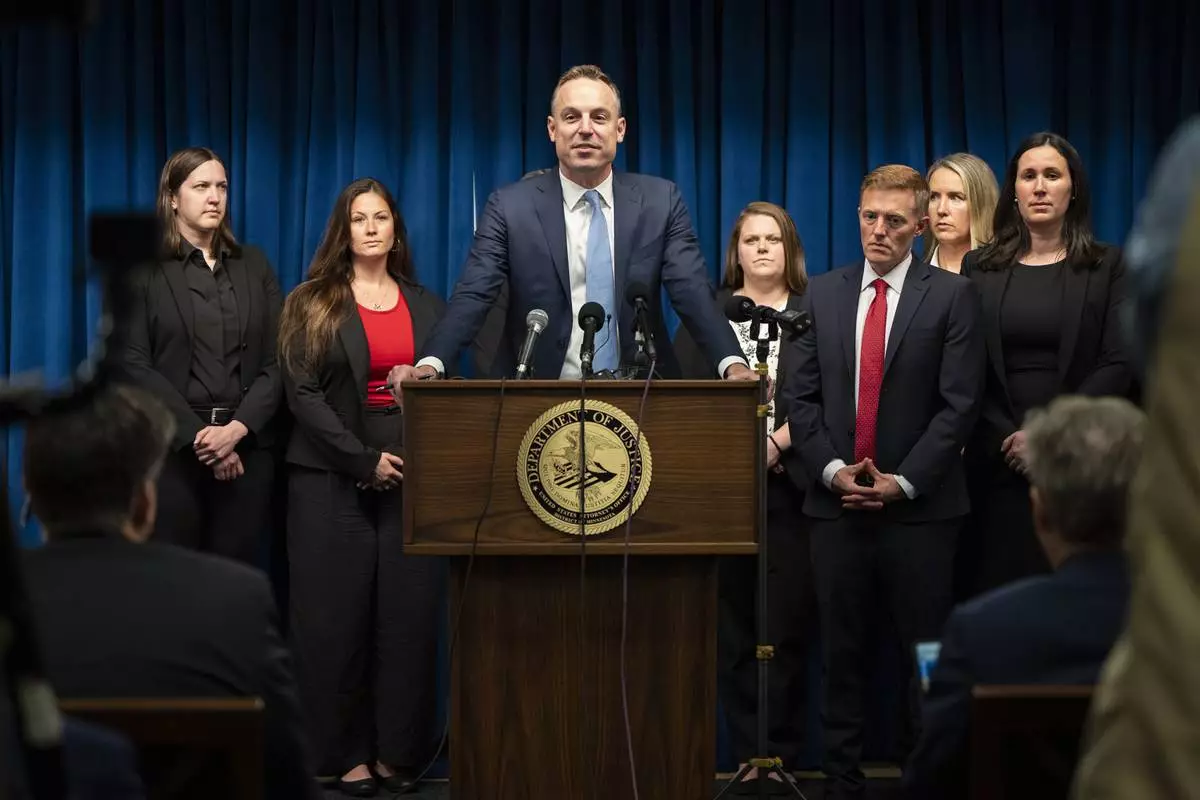
FILE - Assistant U.S. Attorney Joe Thompson, surrounded by the prosecution's trial team, speaks during a news conference after the verdict was read in the first Feeding Our Future case at the federal courthouse in Minneapolis, June 7, 2024. A jury convicted five Minnesota residents and acquitted two others June 7 for their roles in a scheme to steal more than $40 million that was supposed to feed children during the coronavirus pandemic. The U.S. Attorney’s Office and the FBI announced charges in the case Wednesday, June 26, 2024. (Leila Navadi/Star Tribune via AP, File)
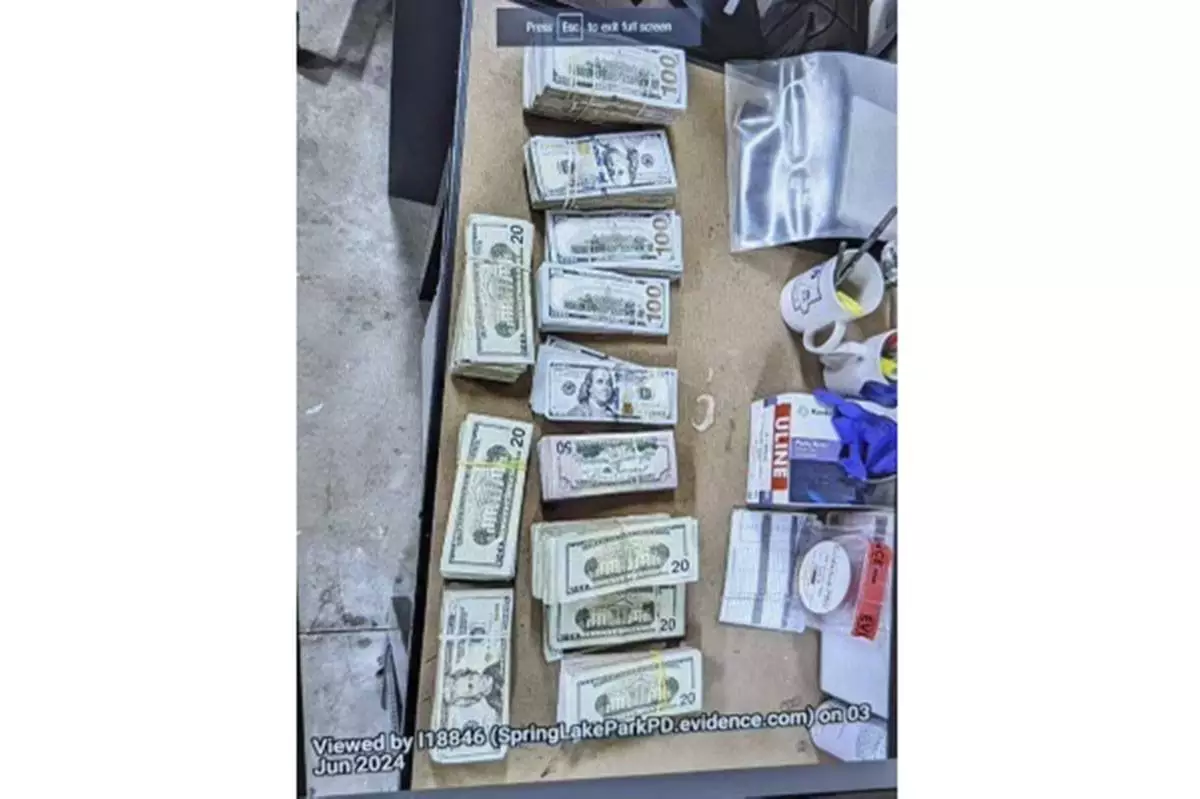
FILE - This photo, supplied by the U.S. Attorney's Office for Minnesota, shows $120,000 in cash, taken from a bag that was left at the home of a juror in one of the country’s largest pandemic aid fraud cases, June 2, 2024, outside Minneapolis, Minn. The U.S. Attorney’s Office and the FBI announced charges in the case Wednesday, June 26, 2024. (U.S. Attorney's Office for Minnesota via AP, File)



